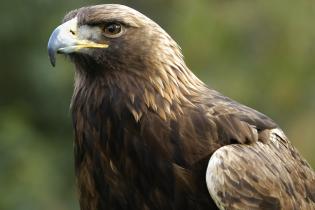Search
Program
Western Big Game Seasonal Habitat and Migration Corridors Fund
The Western Big Game Seasonal Habitat and Migration Corridors Fund aims to conserve critical winter range and migration corridors to maintain healthy populations of pronghorn, elk and mule deer, and the phenomenon of big game migration. The program is working with conservation partners across Arizona, California, Colorado, Idaho, Montana, Nevada, New Mexico, Oregon, Utah, Washington and Wyoming.Image
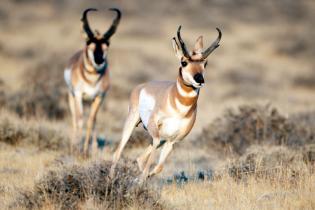
Program
Southern Plains Grassland Program
The Southern Great Plains host a unique set of wildlife species that are specifically adapted to this grassland ecosystem. Many of these species, such as the monarch butterfly and songbirds, migrate to and from the region in order to complete their life cycle. Others, including the pronghorn, swift fox, prairie chicken and bobwhite quail are year-round residents that live alongside human residents who are engaged in the ranching of livestock, primarily beef cattle.Image
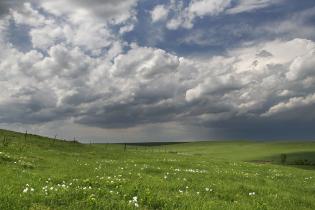
Program
Refugio Beach Oil Spill Settlement – South Coast Shoreline Parks and Outdoor Recreation Grants Program
The National Fish and Wildlife Foundation, together with the California Department of Fish and Wildlife, California Department of Parks and Recreation, California State Lands Commission, and Regents of the University of California (collectively the “State Trustees”), established the Refugio Beach Oil Spill Settlement – South Coast Shoreline Parks and Outdoor Recreation Grants Program with funds it received on behalf of the State Trustees from settling defendants pursuant to a consent decree in the matter of the United States of America and People of the State of California ex rel. California Department of Fish and Wildlife et al. v Plains All American Pipeline, L.P. et al. These funds will be used to fund recreationally-based shoreline projects to benefit public access to, and use and enjoyment of, natural and cultural resources downcoast of El Capitan State Beach in Santa Barbara County to Long Beach in Los Angeles County. The projects are intended to compensate the public for loss of use and enjoyment of natural resources, parks, public beaches and other public resources downcoast of El Capitan State Beach in Santa Barbara County to Long Beach in Los Angeles County as a result of the Refugio Beach oil spill. Additional settlement funds are being separately administered by the California Department of Parks and Recreation and the University of California Regents for projects to compensate the public for human use impacts upcoast from, and including El Capitan State Beach, and impacts to research, education and outreach at Coal Oil Point Nature Reserve.Image
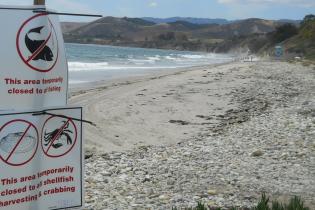
Program
Bycatch Hotspots Initiative
The National Fish and Wildlife Foundation (NFWF) and the National Oceanic and Atmospheric Administration (NOAA) are evaluating the feasibility of bycatch hotspot communication networks to reduce fish bycatch following the 2010 Deepwater Horizon oil spill.Image
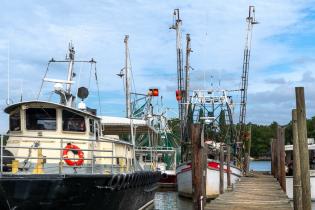
Program
Desert Tortoise Recovery Partnership
The Desert Tortoise Recovery Partnership (DTRP) was formed through partnerships between the National Fish and Wildlife Foundation (NFWF), U.S. Marines Corps, U.S. Army, Department of Defense, U.S. Fish and Wildlife Service (USFWS) and the U.S. Bureau of Land Management (BLM) to coordinate implementation of strategies and provide additional resources to address the pressing conservation needs of the Mojave desert tortoise in the West Mojave Desert of southeastern California. The DTRP was established as an effort of the Recovery and Sustainment Partnership (RASP), a joint initiative of the Department of Defense and the Department of the Interior to develop species conservation and recovery programs and provide increased flexibility for military missions.Image

Program
Trinity River Restoration Program (Bureau of Reclamation)
The Trinity River Restoration Program (Trinity Program) is a partnership with the U.S. Bureau of Reclamation (Reclamation) to support local and regional on-the-ground actions that reduce fine sediment delivery or improve habitat connectivity in degraded watersheds in the Trinity Basin.Image

Program
America’s Ecosystem Restoration Initiative
Intended to streamline grant funding opportunities for voluntary conservation and restoration projects around the United States, the America’s Ecosystem Restoration Initiative consolidates funding from multiple federal agencies and the private sector to enable applicants to develop and implement projects that address shared funder priorities and span public, private, and Tribal lands.Image
